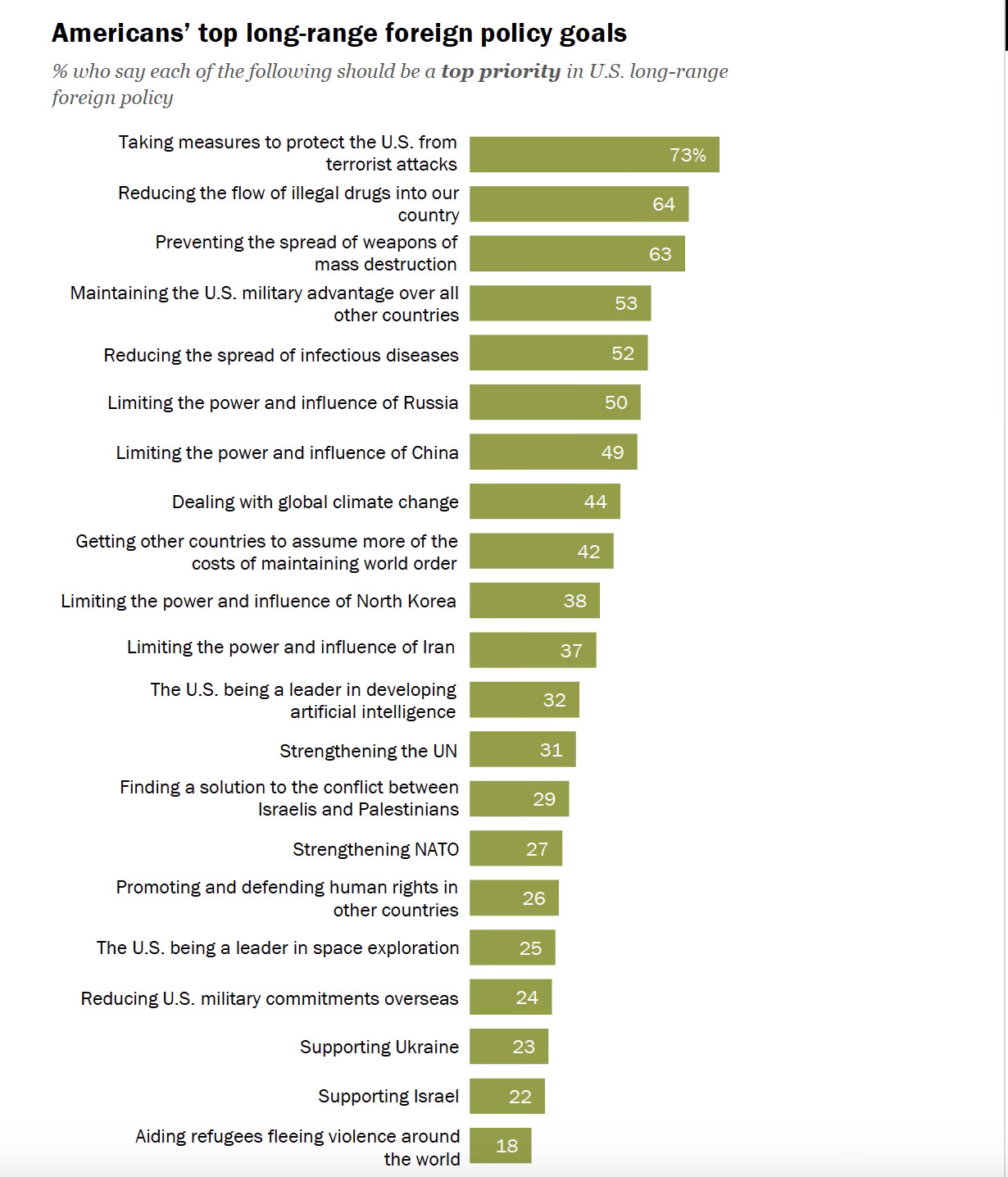Polling the Public Mind on Foreign Policy
The Pew Research Center came out with new polling that displays year-on-year changes in public opinion about various foreign policy priorities. I have some reservations about it.
Here’s a snapshot of the latest findings:
Pew has asked a weird question—What is the long-range foreign policy priority for the US? It’s a question that, in answering it, requires subordinating many issues that someone might think quite important. Still, much of this ranking is unsurprising. Only three results jump out as other than expected:
“Dealing with global climate change” (44%) is lower in priority than I would’ve thought given that, other than nuclear war, it’s the only issue that can claim to be existential for most people. But it’s also possible that the public doesn’t think of climate change as an issue to be dealt with via foreign policy. For instance, the Inflation Reduction Act is the main vehicle for US climate action, but does the public think of it as a foreign policy thing? Certainly not. And of course Pew detected a massive partisan and generational chasm on this question.
“Getting other countries to assume more of the costs of maintaining world order” (42%) is a much higher priority than I expected. Overall, the polling looks like Americans are not particularly invested in American hegemony per se, even though they still want all the advantages that historically came with it. This could be promising from a restraint-based foreign policy agenda perspective, but it could be disastrous too. It would be predatory and ultimately destabilizing to stop caring about global public goods while insisting on being first among unequals in every measurable respect. That’s pretty close to MAGA foreign policy.
“Reducing the illegal flow of drugs into our country” (64%) is something I would’ve taken as a question that preoccupies MAGA Boomers. And it kind of is—Pew detected a massive generational gap on this question (39% among ages 18-29, 84% among ages 65+), and it’s obviously bound up with Americans who experience in some way the opioid epidemic, which is very real. But I find it a little surprising that most Americans see this very 1990s-era question as one that is to be addressed via foreign policy where climate change is not.
But that’s all just registering results other than what I might have expected. I have three major beefs with this whole polling thing overall.


